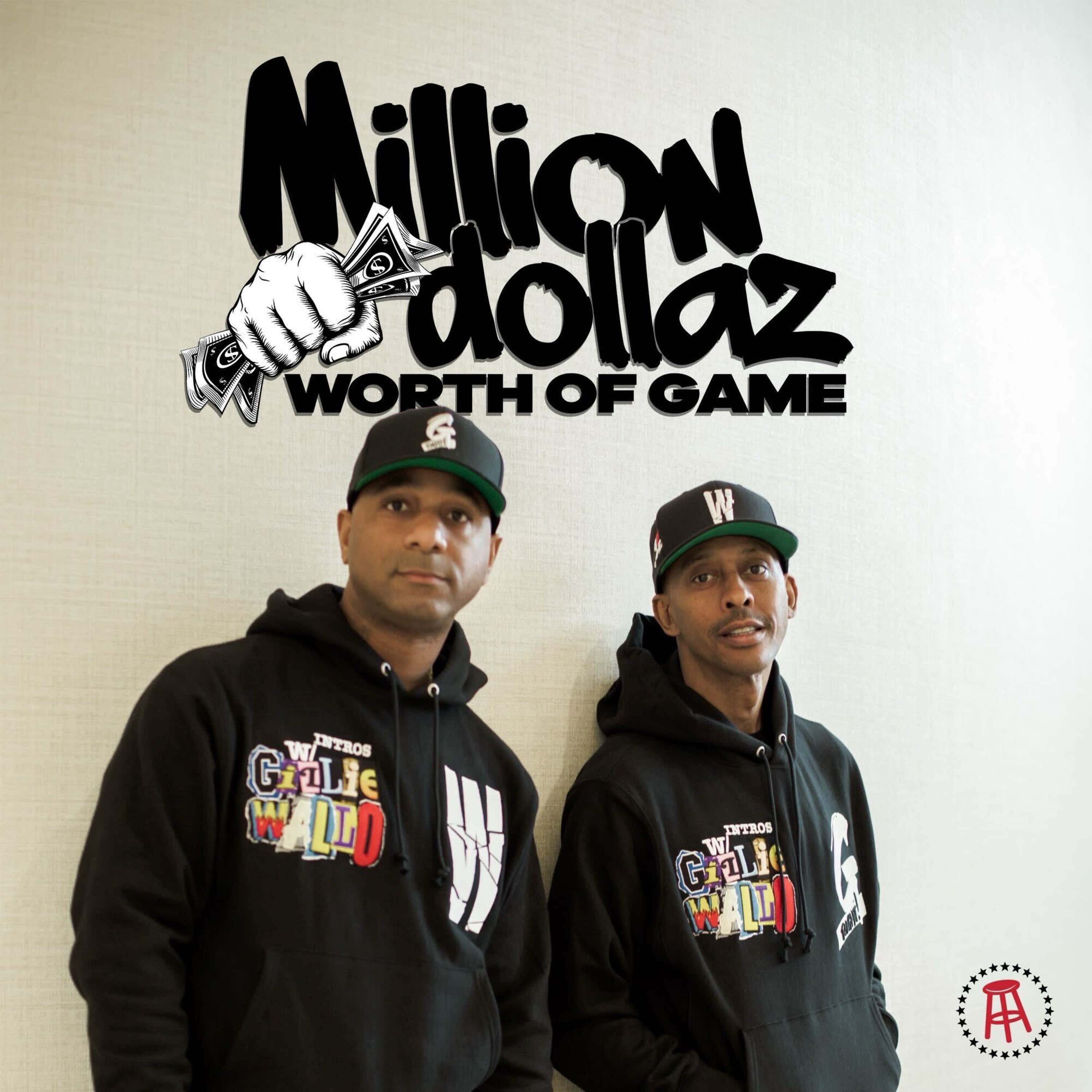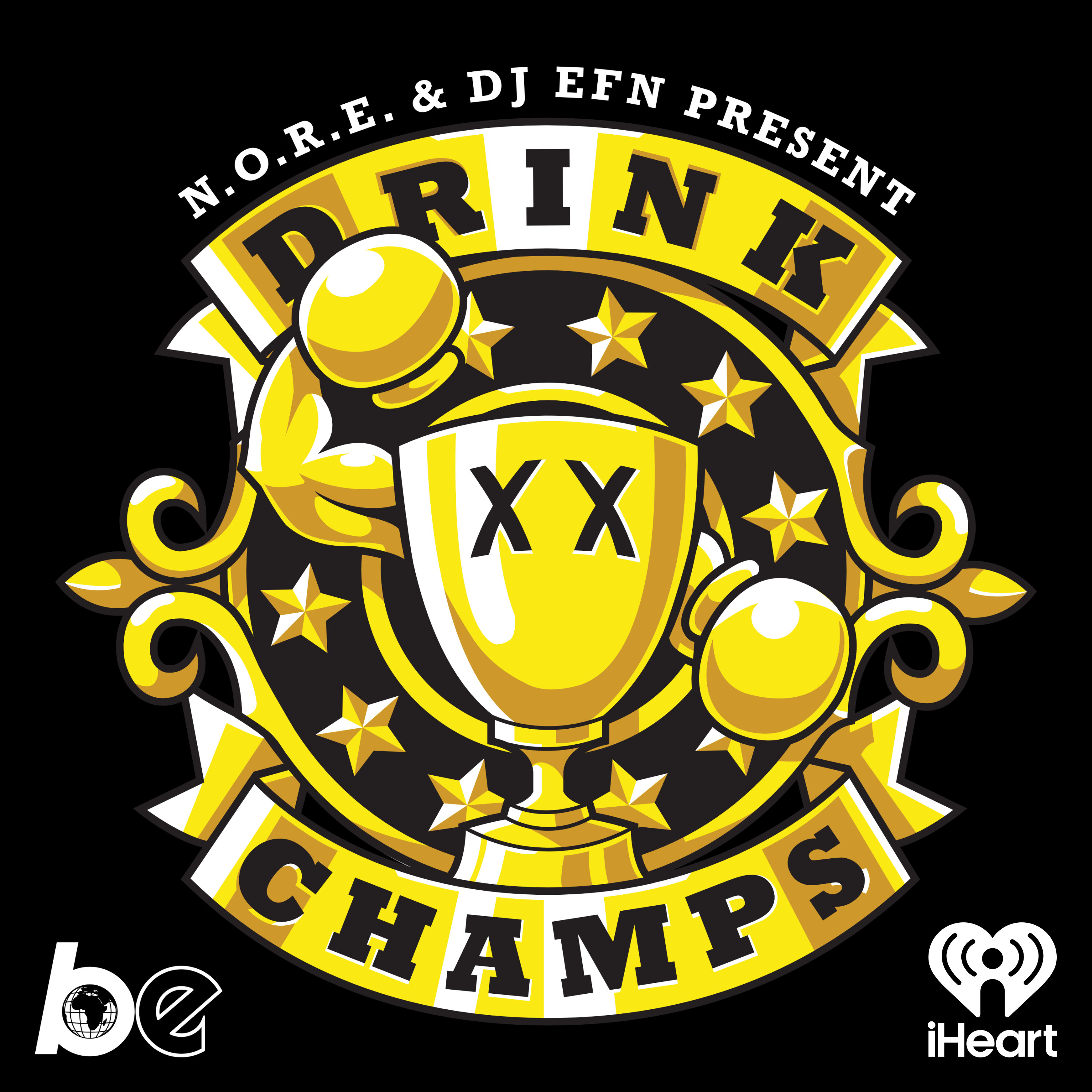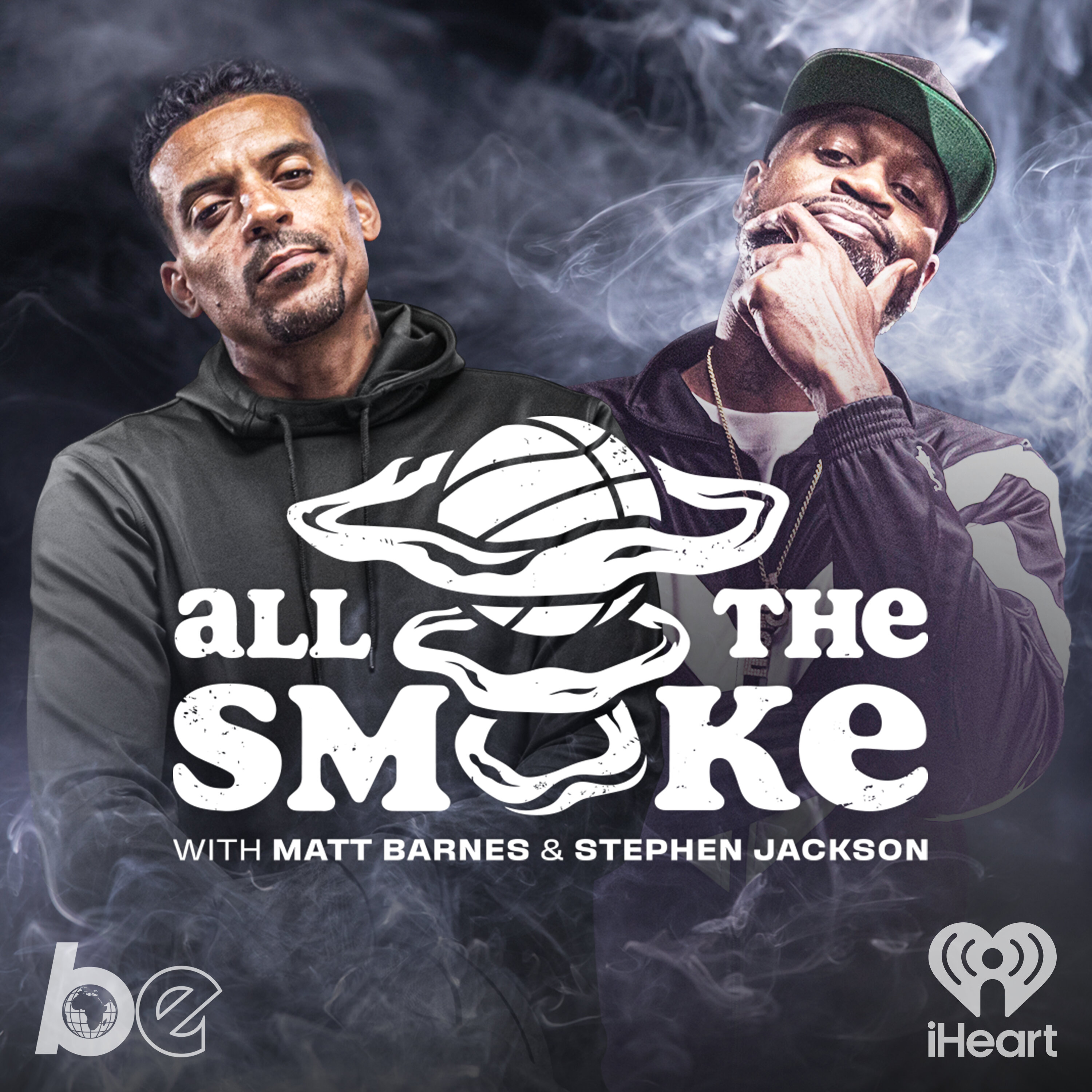
LFTG Radio
“Good morning and Godspeed. It’s ya boy Elliott Carterr reporting live from the gutter.”
LFTG Radio isn’t here to coddle the culture. We’re here to confront it.
Rooted in truth and reporting from the real, we pull back the curtain on power, pain, and propaganda — straight from the streets to the global stage.
This is where mainstream media won’t go.
Where the gutter meets geopolitics.
Where unfiltered voices challenge the narrative, and real stories refuse to stay buried.
We’re not chasing clout — we’re chasing clarity.
From the courtroom to the corner store, from Africa to Rikers, we ask what others won’t.
No spin. No sellout. Just straight facts from the frontlines.
This ain’t no fairytale — this is LFTG.
LFTG Radio
Collect Call from History: The Chuckie Taylor Interview - Part 1
Charles MacArthur Emanuel—known to many as Chuckie Taylor—speaks to us from United States Penitentiary Lee in Virginia, where he is serving a 97-year sentence under a conviction he has always challenged. In this raw and unfiltered conversation, he shares the story the world hasn’t heard.
Far from the one-dimensional villain of news headlines, Emanuel reveals himself as a man searching for truth, accountability, and redemption. Born in Boston to a Trinidadian mother and Liberian father, he was raised with Caribbean values of respect and “manas” long before Liberia’s brutal civil conflict. An assassination attempt on his father, President Charles Taylor, pushed him toward creating the Anti-Terrorist Unit to protect his family—a decision he says was driven by loyalty, not lust for power.
Chuckie Taylor describes himself now as “Gomai,” a man in philosophical transition who rejects the narrative of a sadistic warlord and asks the world to recognize his growth and humanity. He argues he was unfairly targeted as the only U.S. citizen convicted under federal anti-torture laws—an unprecedented case that he says was more about politics than justice.
This conversation is about complicating the easy story. It’s about giving voice to the condemned and confronting the uncomfortable question: What if this man deserves a second chance?
👉 If you believe in clemency, forgiveness, or the power of change, read his story and consider supporting his petition for a pardon:
🌐 Full stories & reporting: LFTGRadio.com
📺 YouTube exclusives & updates: @LFTGRadio
📱 TikTok updates & commentary: @elliott_carterr
Not for clicks — for clarity.
This call will be recorded and subject to monitoring at any time. To accept this call, press 5. To block this call, you may begin speaking now. Hello, hello.
Speaker 2:What's going on, Chuck?
Speaker 3:All is well. All is well.
Speaker 2:Good morning, godspeed. Elliot Carter reporting live from the gutter. You are now tapped into LFTG Radio today and we're making history On the line. I have Charles MacArthur Emanuel, better known to the world as Chuckie Taylor. This is part one of a raw, uncensored look into a life few of us could imagine. Chuck you on the line.
Speaker 3:Yes, I am Ready to have this interview.
Speaker 2:Yes, sir, before we get into everything, where are you calling from right now?
Speaker 3:I'm currently calling from United States Penitentiary Elite in Virginia and I've been here currently for about seven years, since 2017. Seven or eight years.
Speaker 2:When you hear your name now, Chuckie Taylor, what comes to mind? The man you were or the man you've became.
Speaker 3:Well, it's interesting you say that because it's not really a name that I generally recognize anymore, and it's just based upon an evolving philosophy that I have. I feel like when you're born as a child, you given a name so you can be, you know, the world can basically acknowledge who you are, but when you come to know yourself it is then a man must choose his name, and this is something that I deeply believe in. So, while this name, chucky taylor, is constantly called by many out there in the world, it's a form of designation. There's an evolved man behind these walls, and I prefer prefer to be known as Gomai. Gomai better reflects the state of mind and consciousness that I currently hold, and so when a man finds himself, I think it's important for him to demand that the world recognize the consciousness that he's come into. So the name Chucky Taylor is one that reminds me of a past and not my future.
Speaker 2:Okay, understood, you're the son of one of Africa's most infamous leaders, but you were raised here in America, in Orlando, florida. What was your childhood like before the world put you in the war criminal label?
Speaker 3:Well, interestingly enough, I think we spoke about this briefly, but I was originally born in Boston, mass, born in St Margaret's Hospital. I am the child of immigrants. I'm a first-generation American. My mom is from Trinidad and Tobago, migrated from the island, and my father is from Liberinidad and Tobago, migrated from the island, and my father is from Liberia, as many know. So a typical culturally based childhood, raised under Caribbean standards. And it's important that people know that, because prior to my arrival in Africa, you know, in the Caribbean they say manas right. So I was raised with a certain cultural understanding and respect for the elders even prior to arriving in Africa. So, you know, in the Caribbean you're raised to respect your elders, to say good morning to people and to treat people with a certain degree of respect. That was something that I arrived at Africa with.
Speaker 3:Not something that I learned when I got there.
Speaker 2:Okay, gotcha, yeah. So you lived between two worlds you know Boston, massachusetts and Florida. And then you got, you know your life in Africa. When did you realize your life was different?
Speaker 3:Well, I sort of noticed that. Just, you know, during my younger years my mom made it her business to always have me go to the island. I think I must have traveled to Trinidad at least three times before leaving to go live in Liberia. And when I was much younger, I think my father brought me down to Liberia one time I think I can remember it's about six or seven and it was the only time that I got to meet my grandfather, who was killed during the war. But yeah, that's when I realized my life was different. Just knowing you could experience that by going to school and coming home. I was raised in a Trinidadian household, so I knew that early on. I knew that early on. I didn't realize the depth of that change until I went to go see my father after being disconnected from him for so many years.
Speaker 2:Okay. Did America ever truly accept you, or did you always feel like you were being shaped for something else?
Speaker 3:I felt like I was being shaped for something else again. You know, my dad decided to go back. My father, I should say, decided to go back to Liberia to pursue his dream of being president, say, decided to go back to Liberia to pursue his dream of being president. My mom remarried and you know, my stepdad, you know, did a pretty good job. I credit him for really immersing me in West Indian culture and from there I kind of got a sense of me being different. You know, I was born under some difficult circumstances. I had an operation at a young age and it wasn't guaranteed that I would have survived that surgery. So I guess from the early beginnings, yeah, it was kind of written for my trajectory in life to be, you know, vastly different, unique, in a sense Understood.
Speaker 2:Was there ever a moment you tried to leave that legacy behind?
Speaker 3:From my childhood. No, I mean, you know you're trying to sort of lean into that difference. I will say that I've always been somebody you know prepared and willing to.
Speaker 1:This call is from a federal prison.
Speaker 3:I left Liberia, I left it all behind. You know there was no desire in me to sort of pursue some legacy or pursue some continuation of President Taylor's agenda. In fact I moved on to Trinidad. My daughter was born, I made a transition into trying to pursue other business opportunities which really led me here to the States. And you know, before this nightmare occurred I was literally arrested off the plane. But I came with an agenda to sort of, you know, pursue entrepreneurship. My time in Liberia was mainly designed to support President Taylor. At the time I had no desire or interest to pursue any form of politics in Africa okay, let's talk about the, the unit they say you led in Liberia, the anti-terrorist unit.
Speaker 2:Who trained you? What was your purpose? Protection or control?
Speaker 3:Okay, well, brief history. So prior to President Taylor winning the election, there was an assassination attempt and it shook the family to the core, especially me. I was in Abidjan at the time and I can remember being at Grace Miner's house a very good family friend and we all got the news via BBC. Several people got killed at that time. It was an explosive device placed in the ceiling of the office hallway where, at that time, councilman Taylor was going to or walking through, and so a lot of people don't know that my family, like many others, paid the ultimate sacrifice for this war. Several members of my family, men in my family, got killed supporting President Taylor and I considered it to be a duty to step up and to protect my family family. So ATU was intended to be a protection-based force. Atu started out under an initial program. There were some mercenaries brought in. It was a program that I helped to launch. I was responsible for the payment of these individuals and that program blossomed into much of what the world got to find out about later. But I will say this it had undergone several iterations and transformations at the time and there's a real interesting Washington Post article somewhere around 97 or 98.
Speaker 3:When the unit was first launched, people were very curious.
Speaker 3:They thought that Mr Taylor had brought in foreign troops from Burkina Faso and Gambia, whereby these were some of the very MPFL men that had undergone some very intense training and had exhibited great qualities of discipline and operational capacity.
Speaker 3:And so the unit started out that way. But there were some very difficult political decisions, I believe President Taylor had to make in reference to how the Army was going to be trained in terms of pensions that had to be paid, and he made the decision to rapidly expand the unit. And he made the decision to rapidly expand the unit. It went against pretty much the wishes or the advice that was being given to us, as well as help to dampen the quality and the basis of discipline that was being instilled in his core group of individuals at the time. So it's a deep story. It's not one. I did have some degree of influence in maintaining informational space related to the unit, but there was a time that that was removed and given to others. And giving to others and based upon those decisions made, you know, led to some of the indiscipline and the infractions and different things that took place with those guys.
Speaker 2:Okay, it says here you were feared, even hated by some. Was that power addictive?
Speaker 3:You know the interesting part about it is Was that power addictive? You know the interesting part about it is I've always been a.
Speaker 1:How would I describe it? This call is from a federal prison.
Speaker 3:I'm more of an introspective type of individual, so I didn't relish in what some people call power. And besides coming out of a revolution or a civil war and your father becoming president, there was a lot to deal with. I wouldn't say power was one of them. I wouldn't say power was one of them.
Speaker 2:What do you mean by that? So what was there to deal with?
Speaker 3:What do you say was the biggest thing to deal with the internal? There was a lot of internal competition.
Speaker 3:There were those who sought when you're Let me put it this way when you're dealing with an authoritarian or a leader who is considered to be a dictator, a lot of decisions are centralized, so that attention is being vied for by many. So power is based upon the favor that can be curried or the closeness in relation to that leader. It wasn't something that I was interested in. You know, we had a lot of internal issues between father and son. It wasn't something that impacted that relationship to power. Let's put it that way I was more under the microscope than many. There were a lot of people who could have gotten away with a lot more than me because of my unwillingness to sort of attach myself to the clusters of power or groups vying for that power around the leader at that time, which was my, my father. So, yeah, in fact I was scrutinized a lot more. So what people don't realize is that, uh, I had to answer for a lot more behind the scenes, which means I had to work even harder. I had to do more of what was right than what was wrong because of my unwillingness to brown nose and to curry favor and to buck up to people who were close to my dad.
Speaker 3:African society is a little different, so normally elders have their peer groups, so those people my father had confidence in. There was a natural expectation for me to have relationships with them and I generally didn't trust a lot of people, relationships with them, and I generally didn't trust a lot of people and me being wanting to be protective over my family and my father. Because, you have to understand, if President Taylor was killed at any time, there would be no mistake that any of his children or relatives would have been killed along with him. So I was generally distrusting of many. So I was generally distrusting of many and that played a big role. So in that regard, this whole, you know me being this individual who could do any and everything at any time is a real fallacy.
Speaker 2:Understood. Okay, let's fast forward a little bit. You are the first and only US citizen convicted under federal anti-torture laws. How do you feel about that?
Speaker 3:People always ask about this testimony in relation to the victims. I believe that these individuals could have suffered some abuse at some time during that 12-year conflict. It is possible that ATU men in the lower ranks could have somehow been responsible. But to directly connect me to arrests at checkpoints in deep areas of Liberia's countryside, it's stretching it. But before this phone cuts off, I'd like to build on this a little bit more and I will be calling back in an hour. I appreciate your time and I appreciate this opportunity.
Speaker 2:Absolutely.
Podcasts we love
Check out these other fine podcasts recommended by us, not an algorithm.

Million Dollaz Worth Of Game
Barstool Sports
LFTG Radio
Elliott Carterr
The Joe Budden Podcast
The Joe Budden Network
Drink Champs
The Black Effect Podcast Network and iHeartPodcasts
All The Smoke
The Black Effect Podcast Network and iHeartPodcasts



